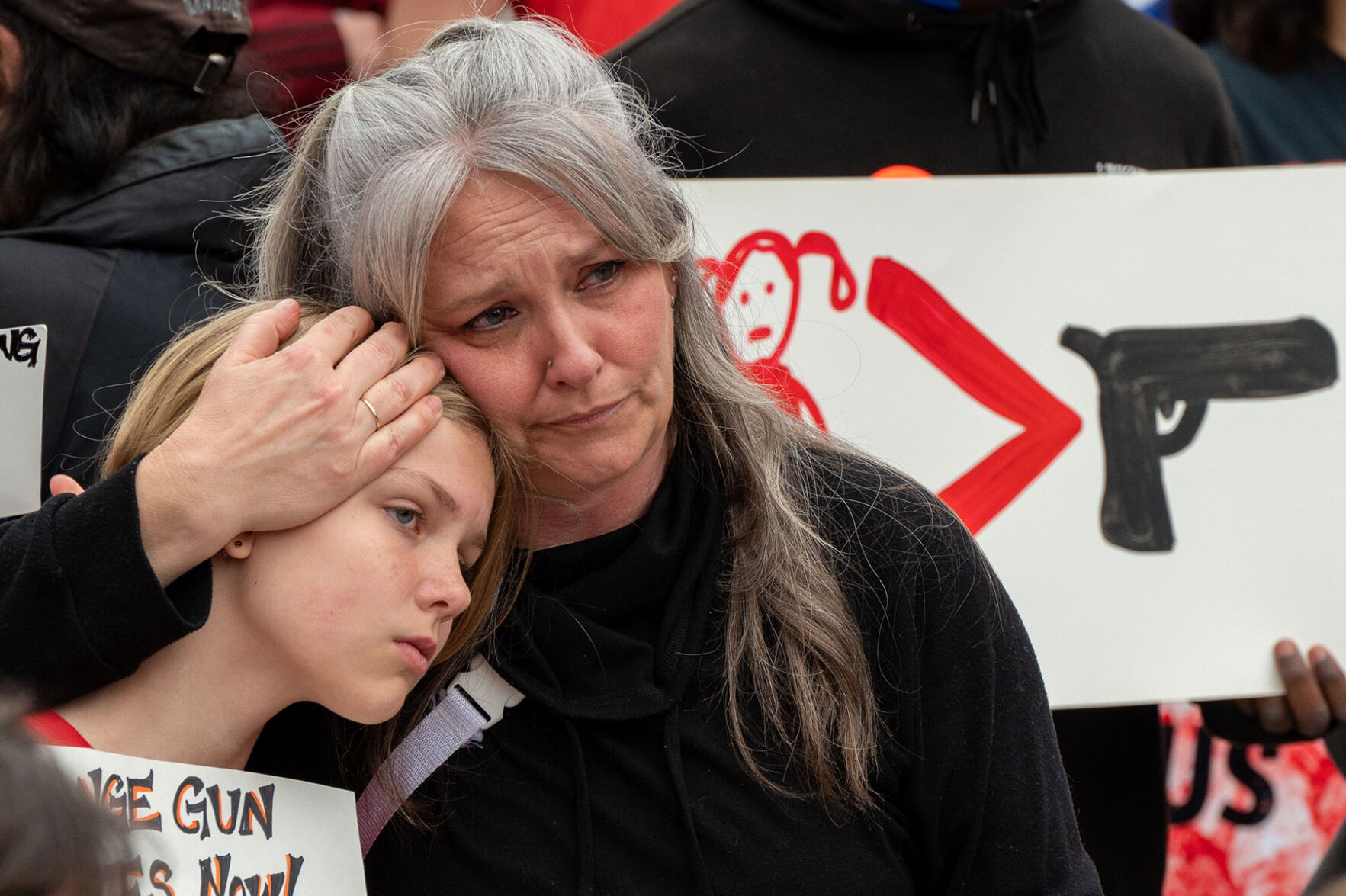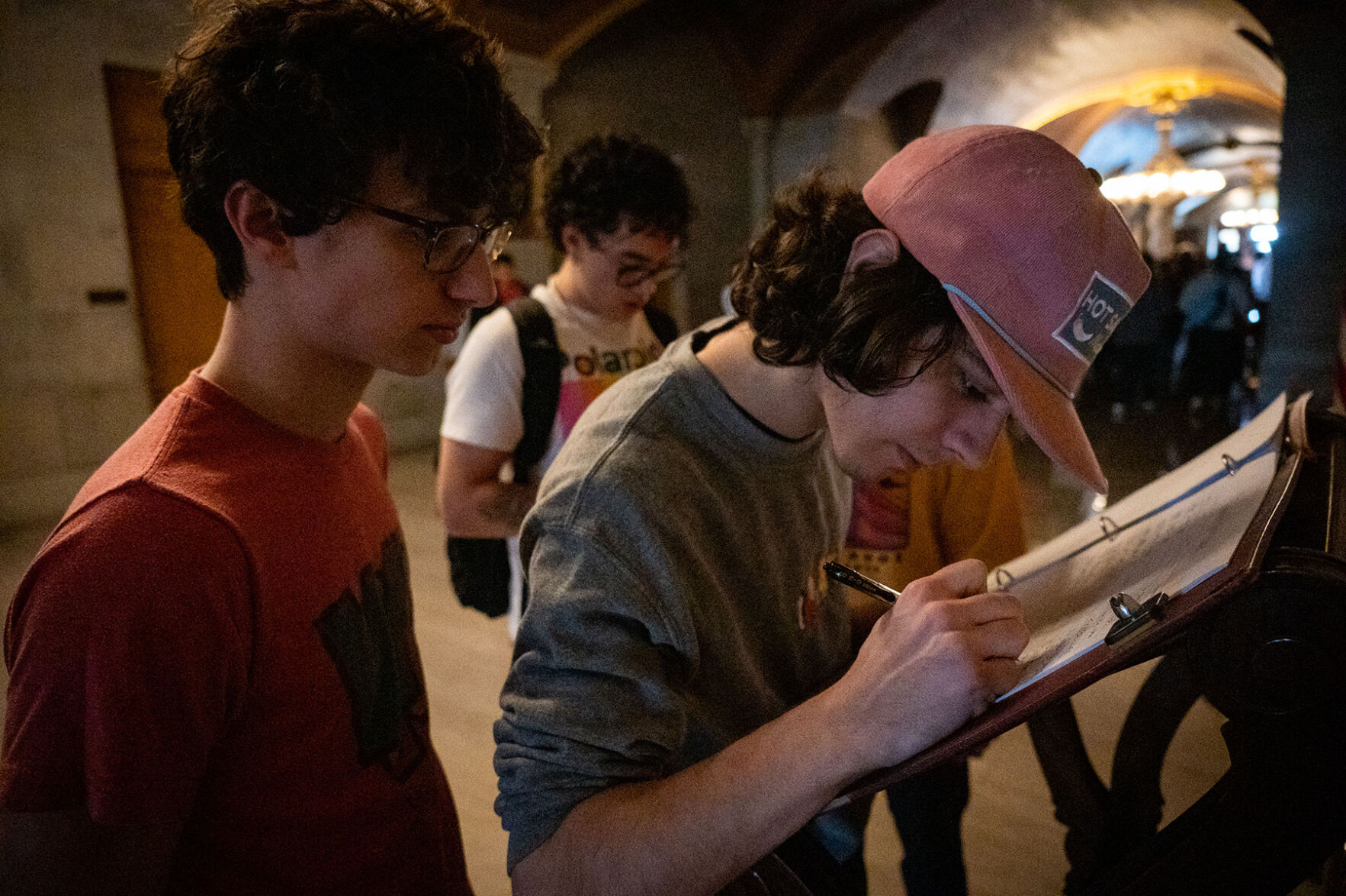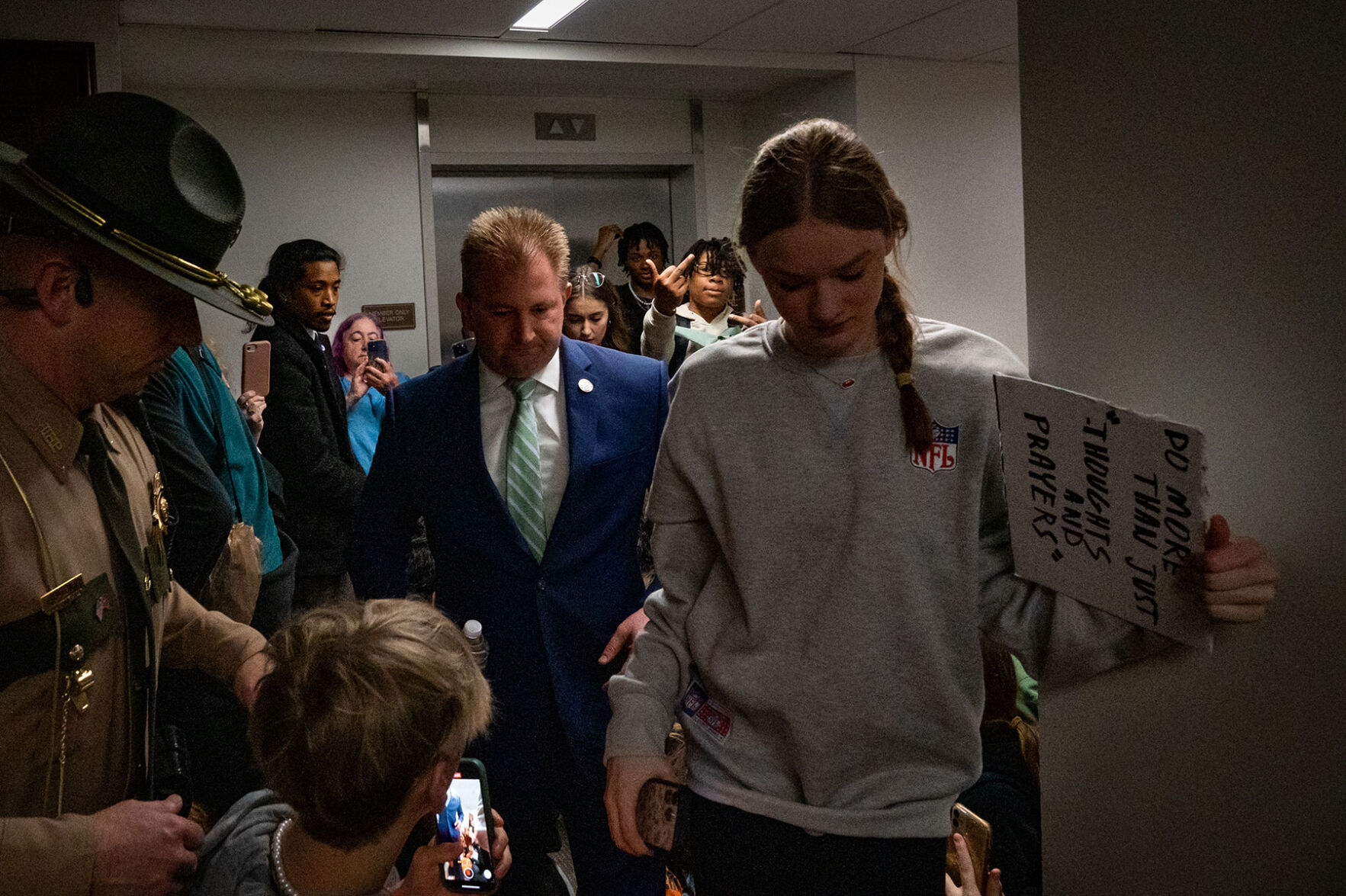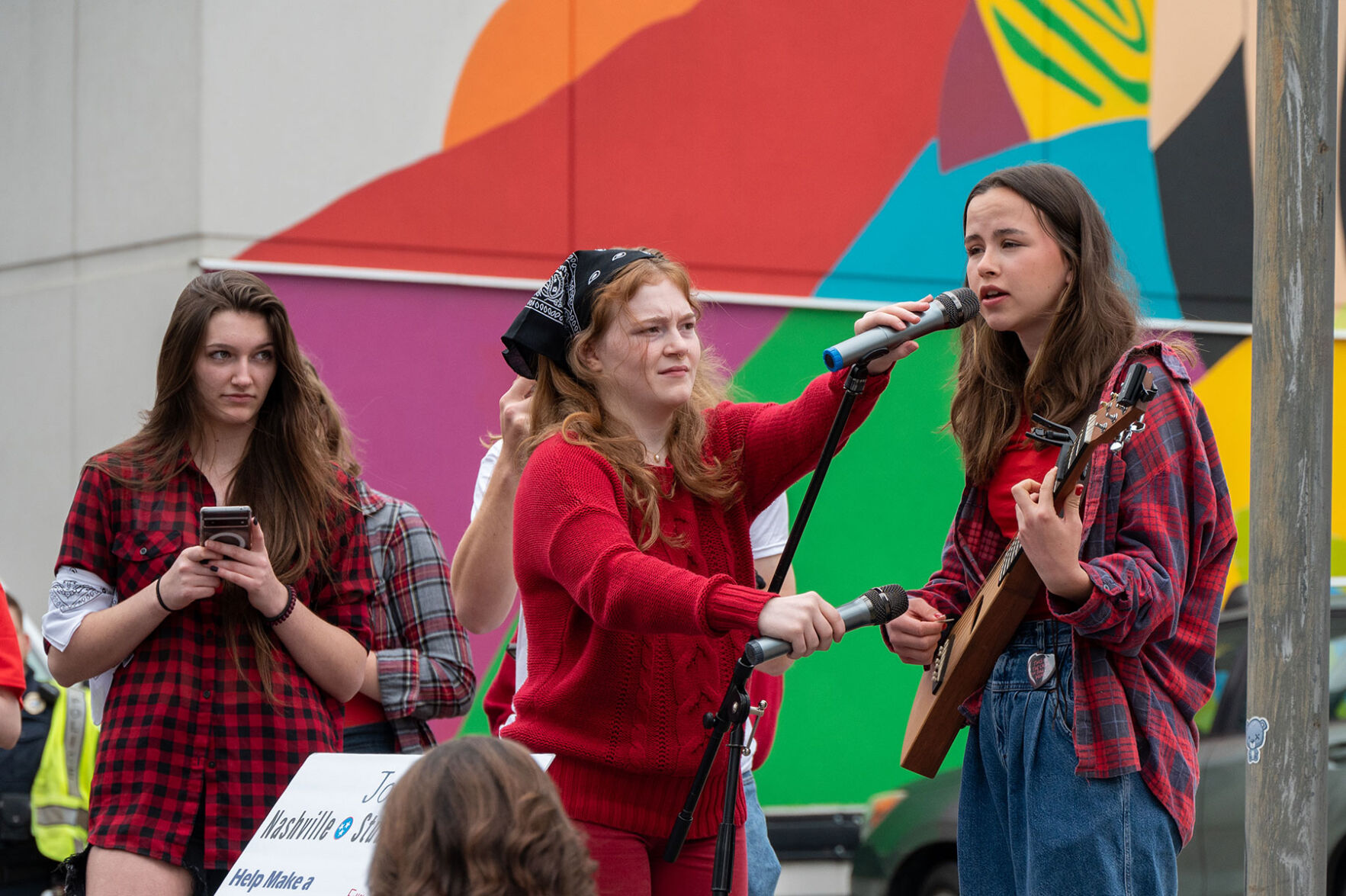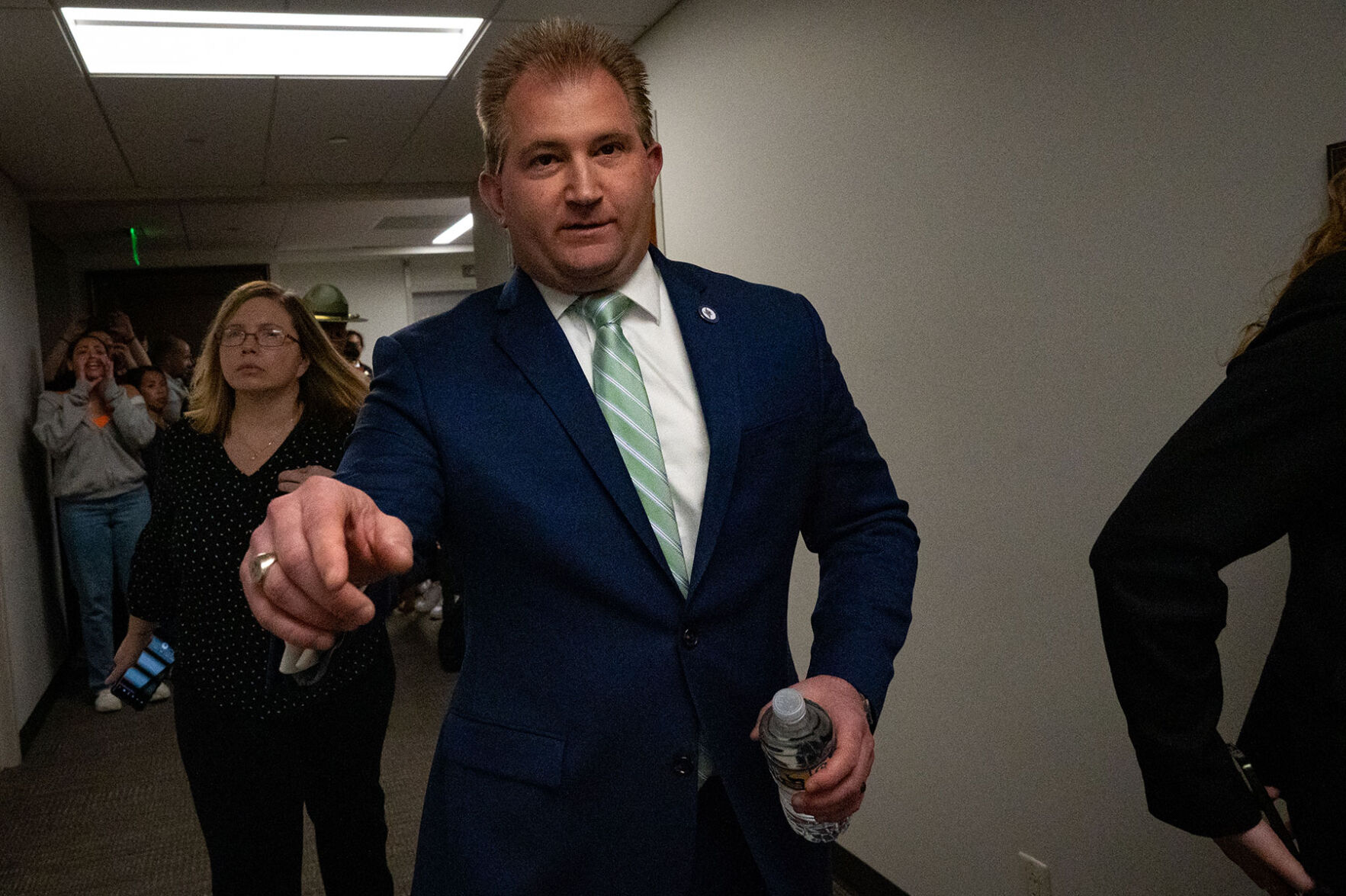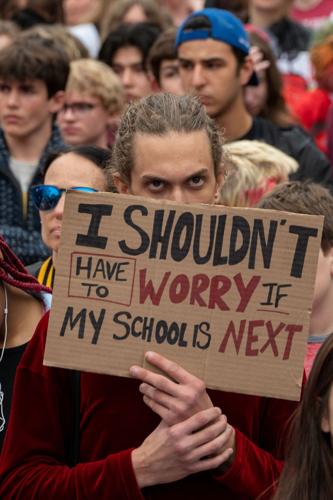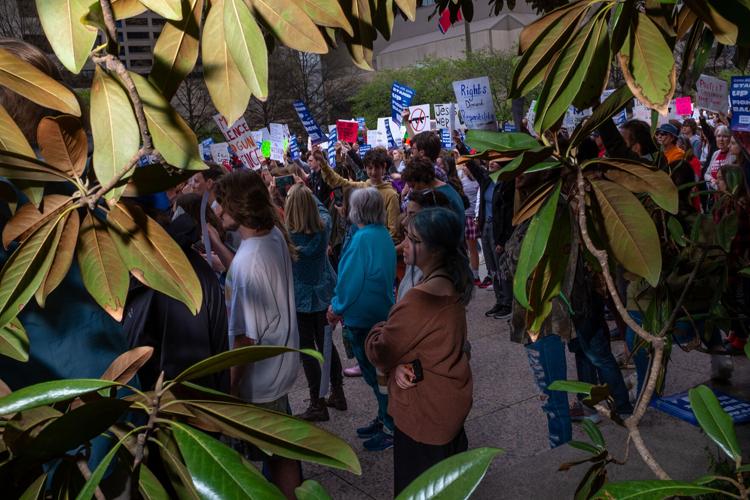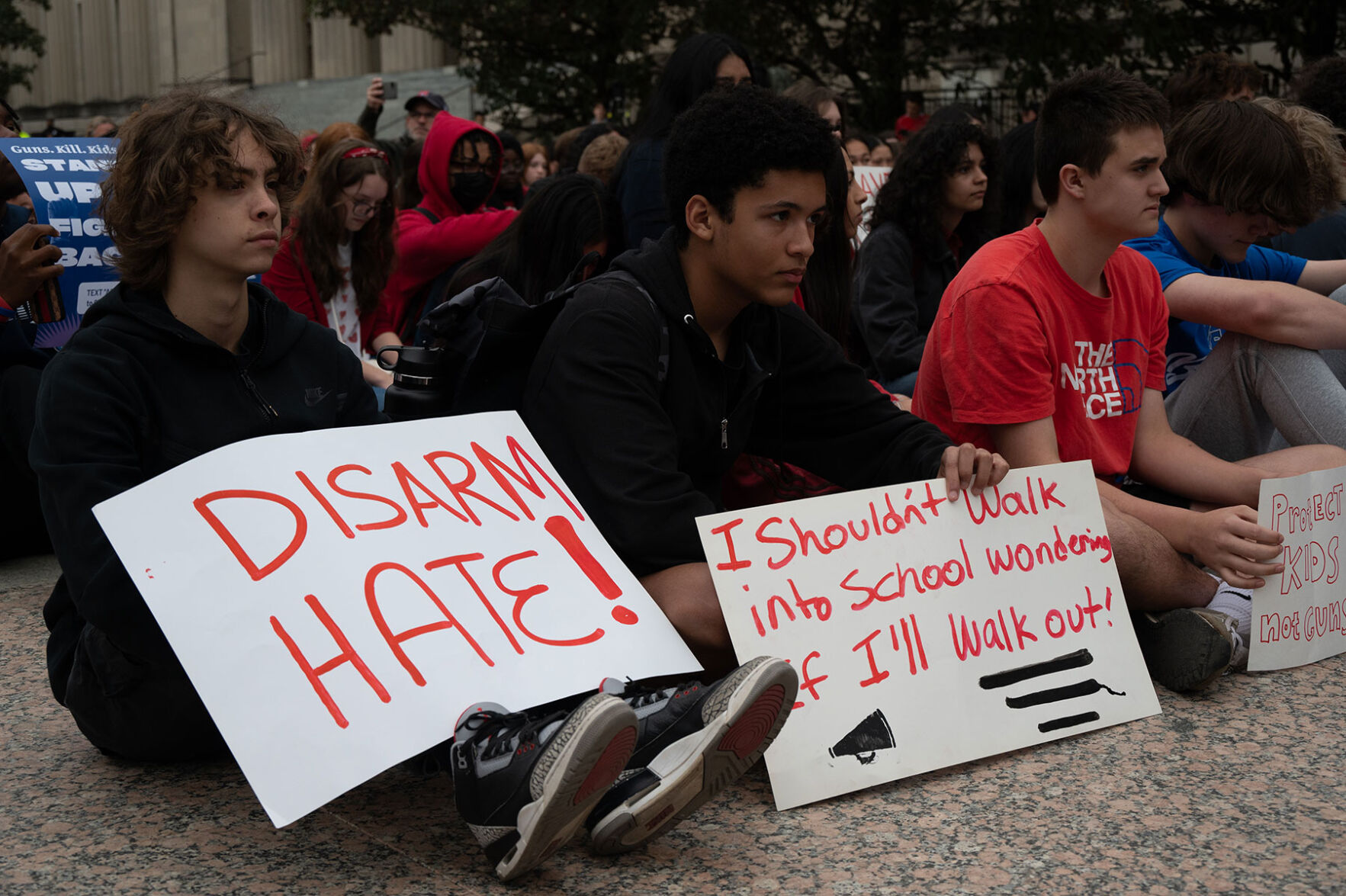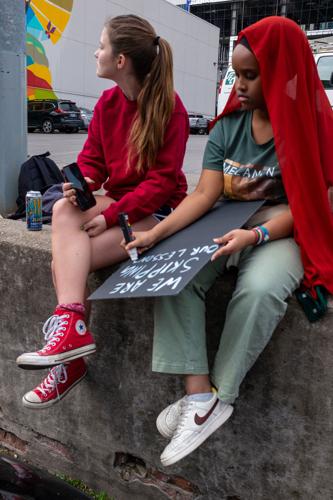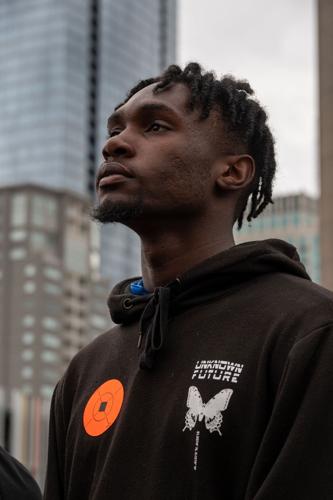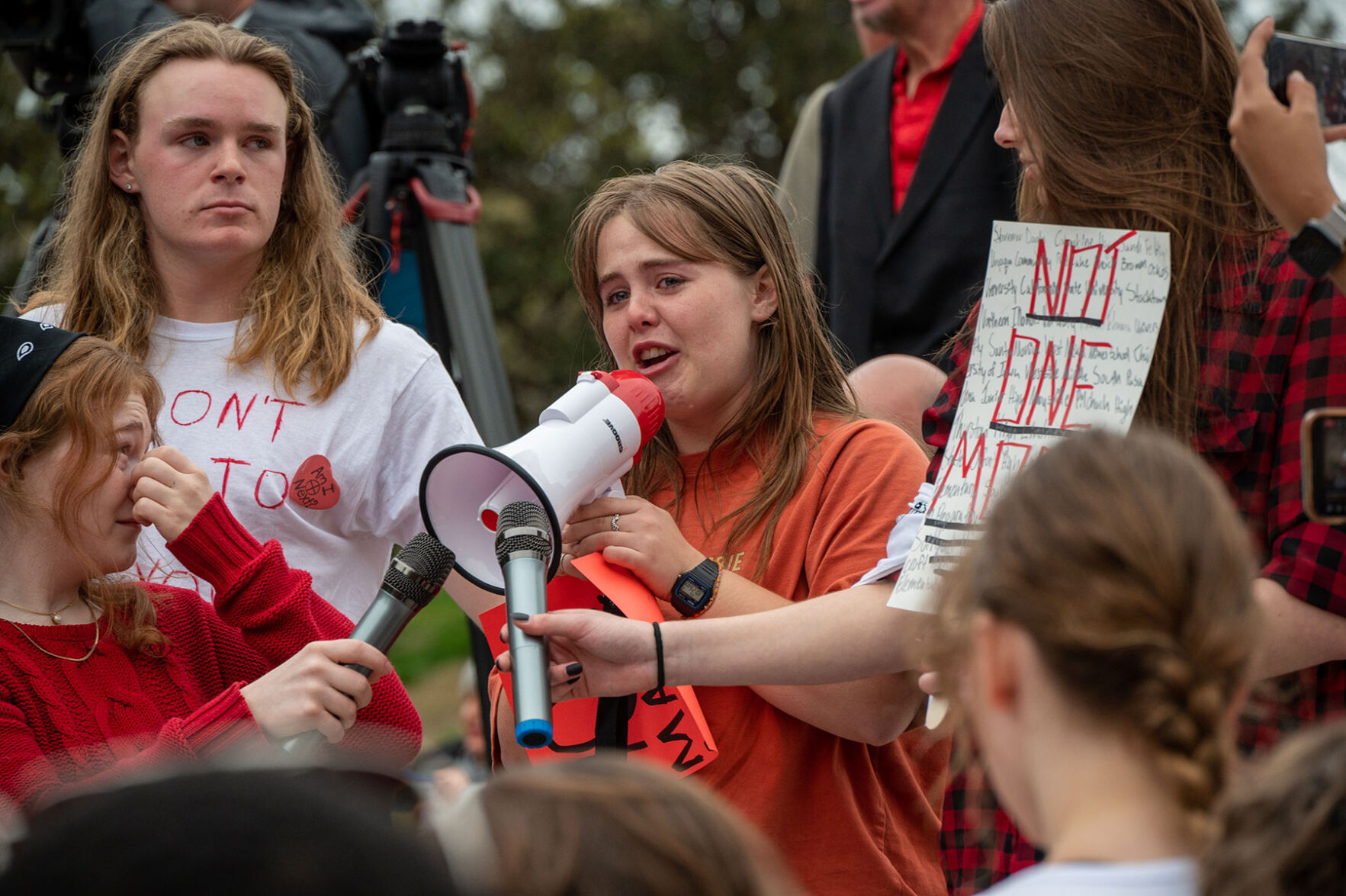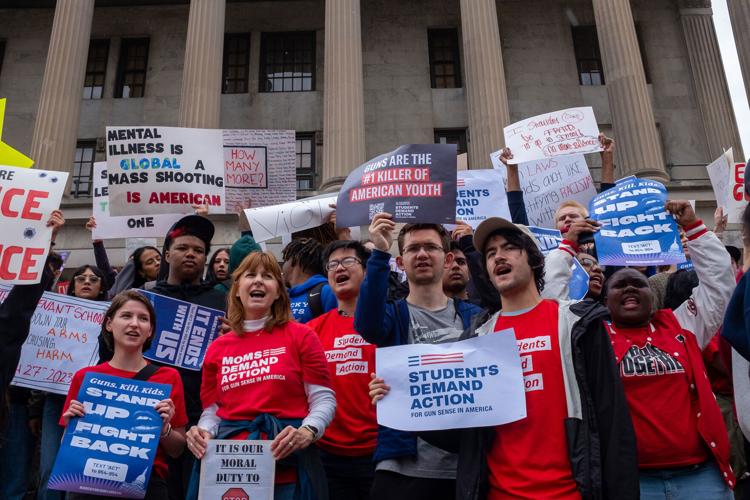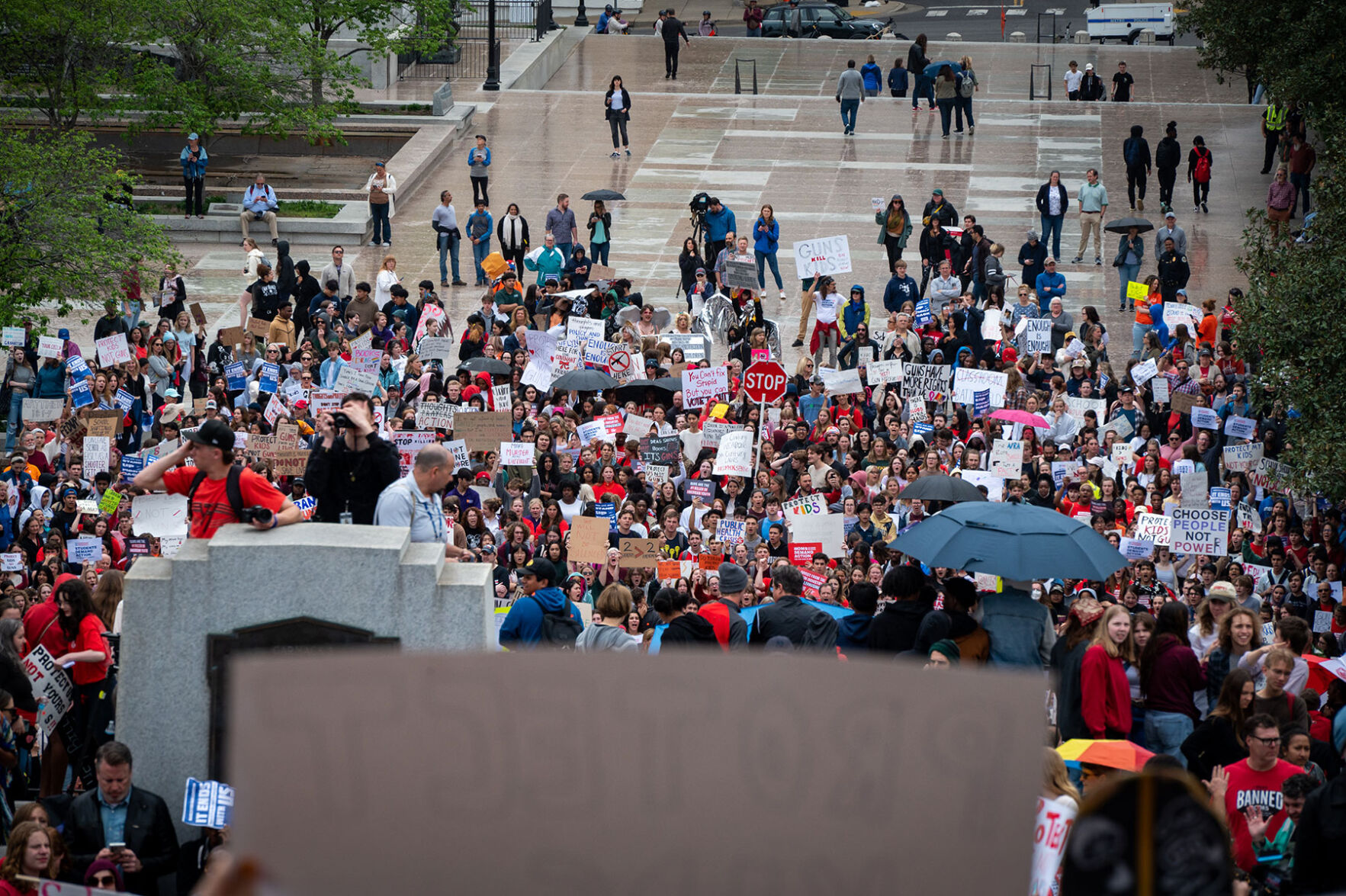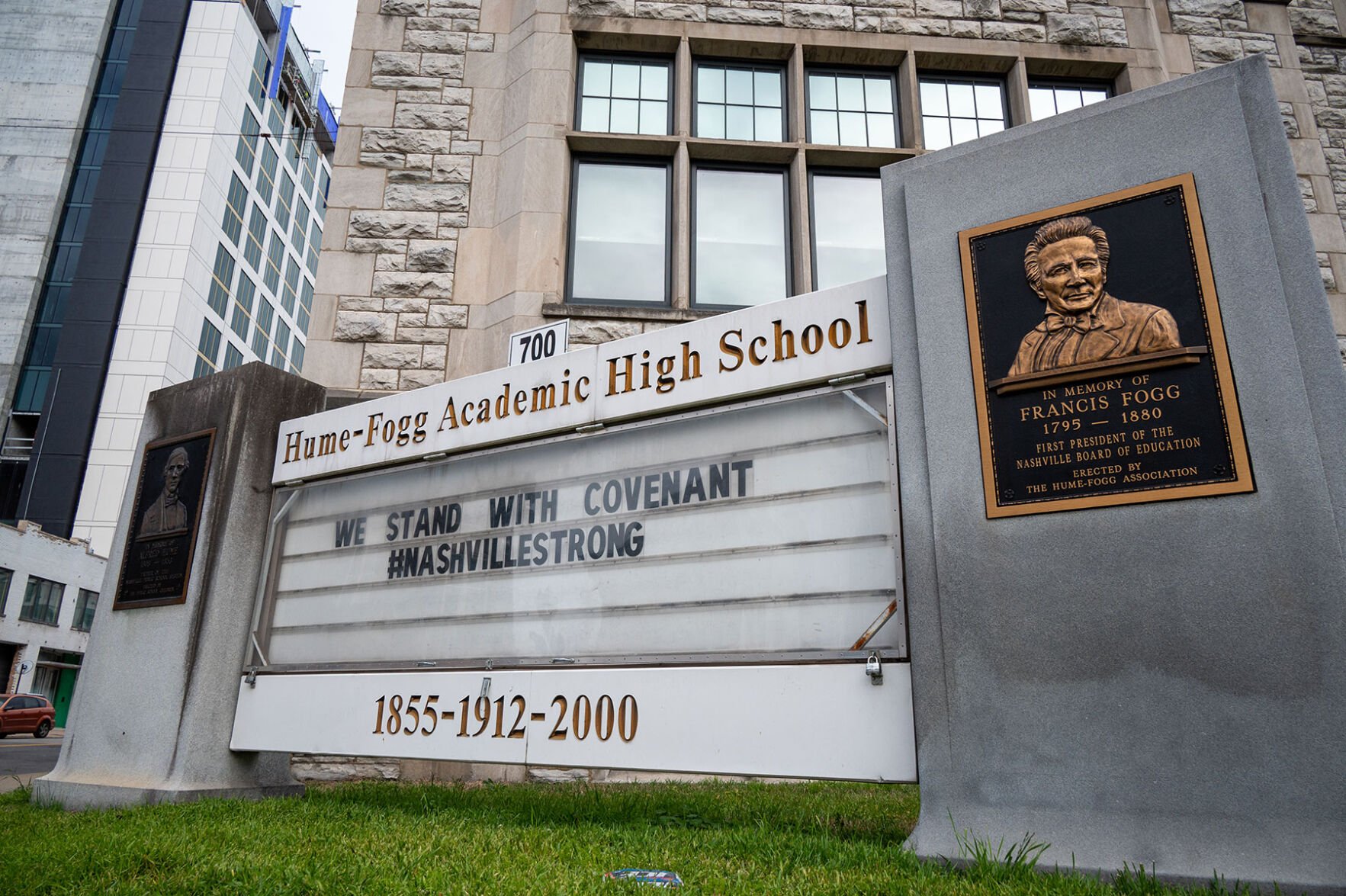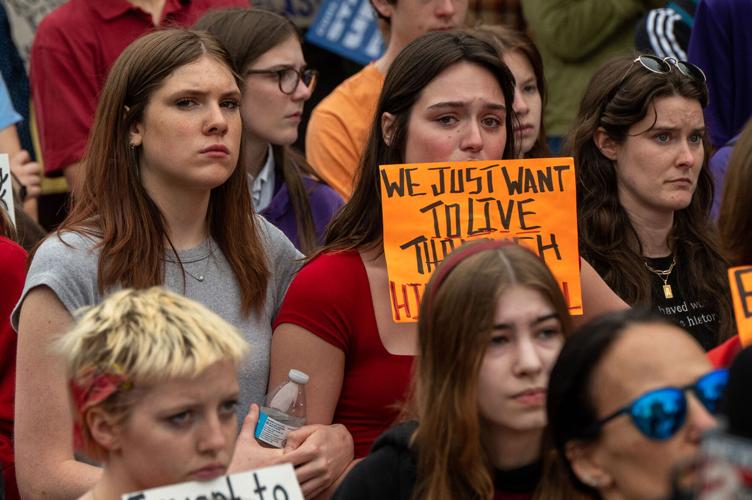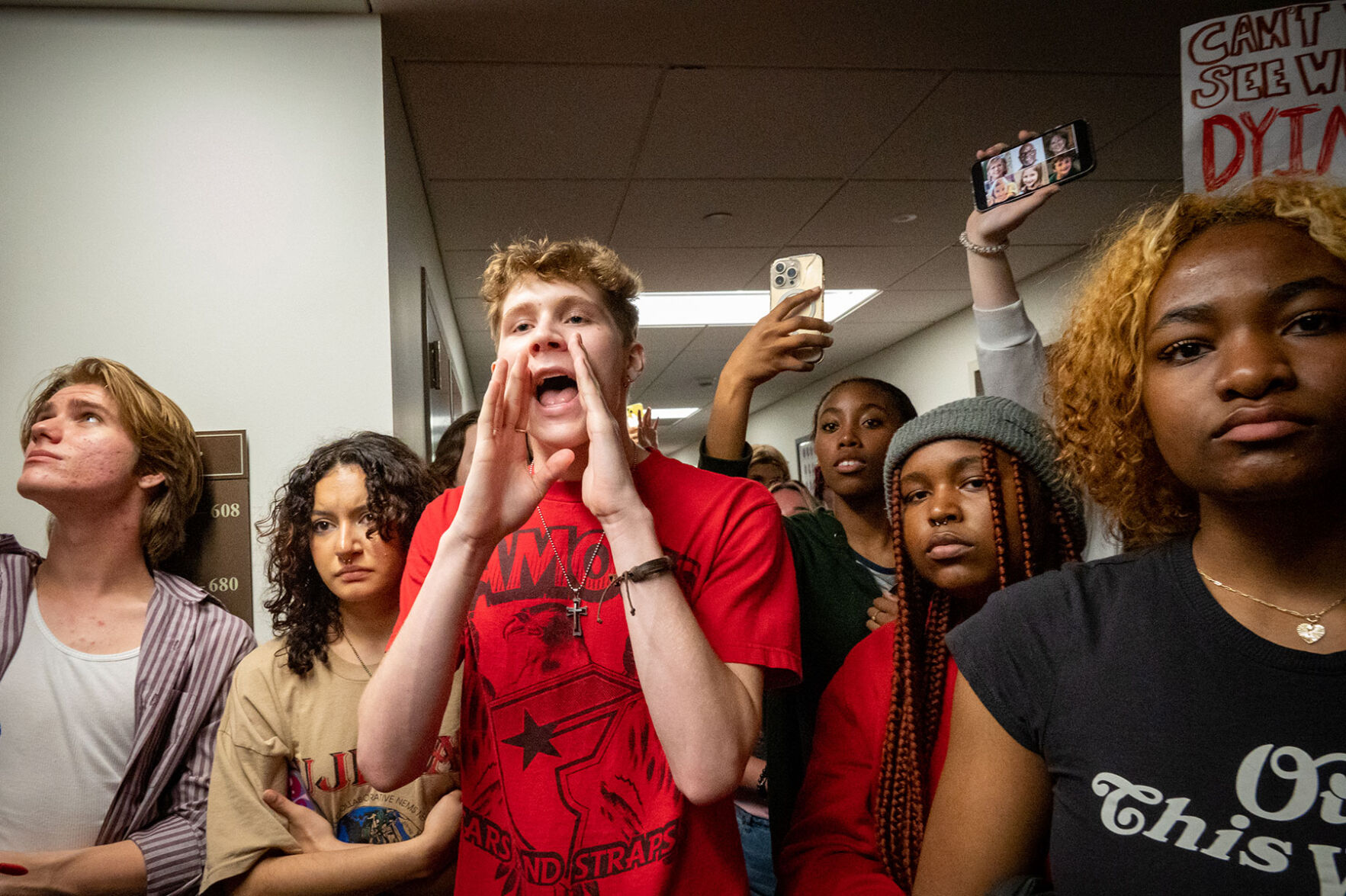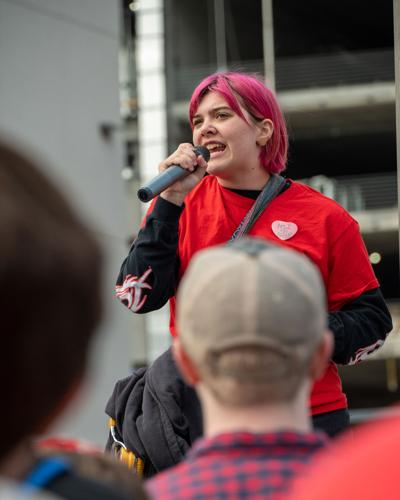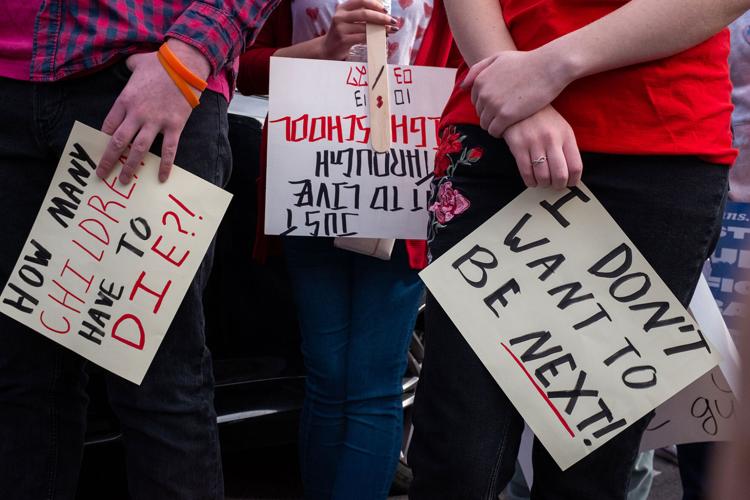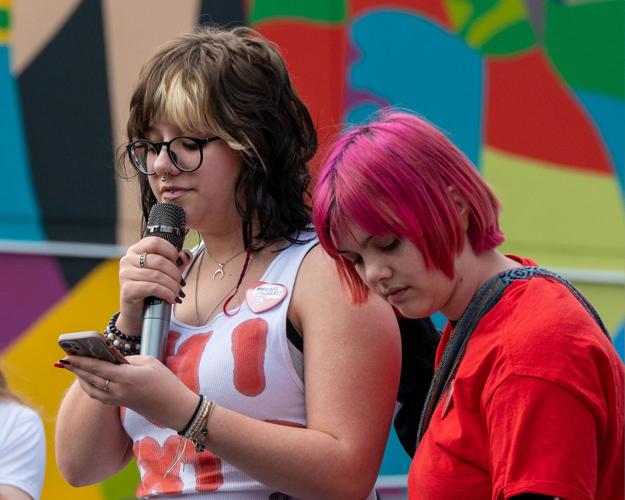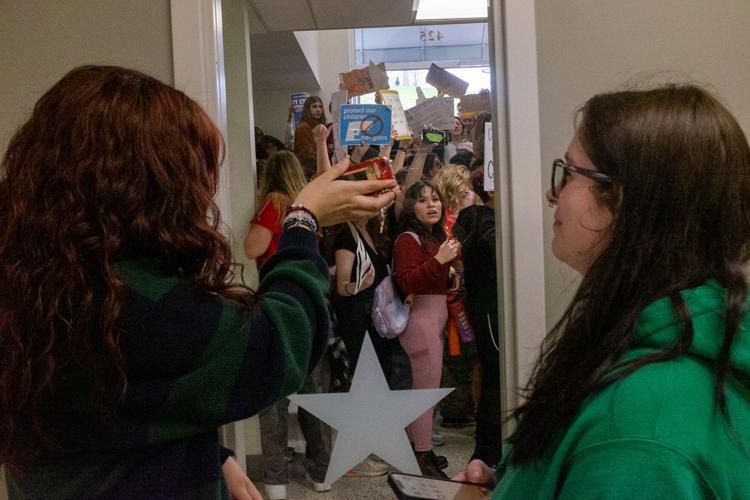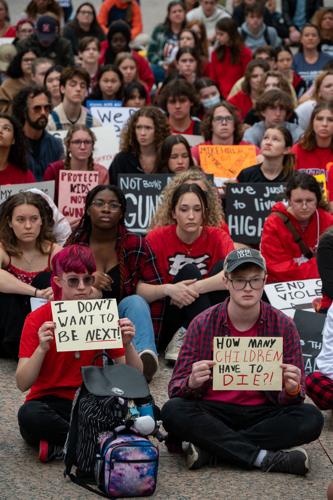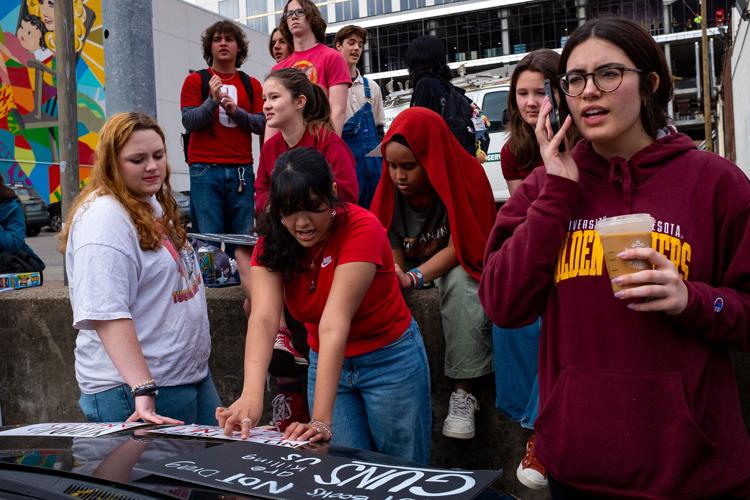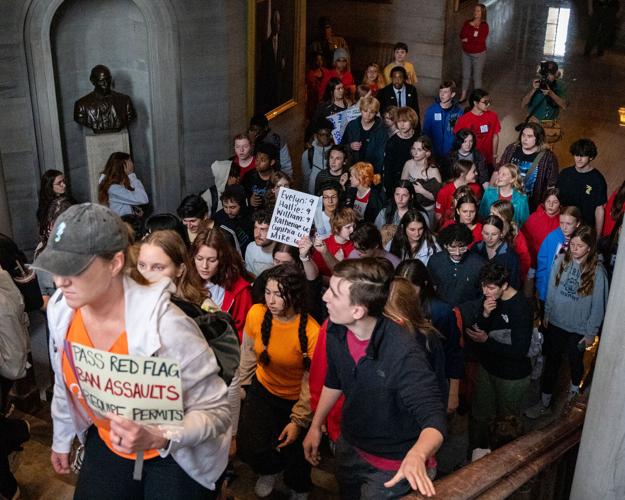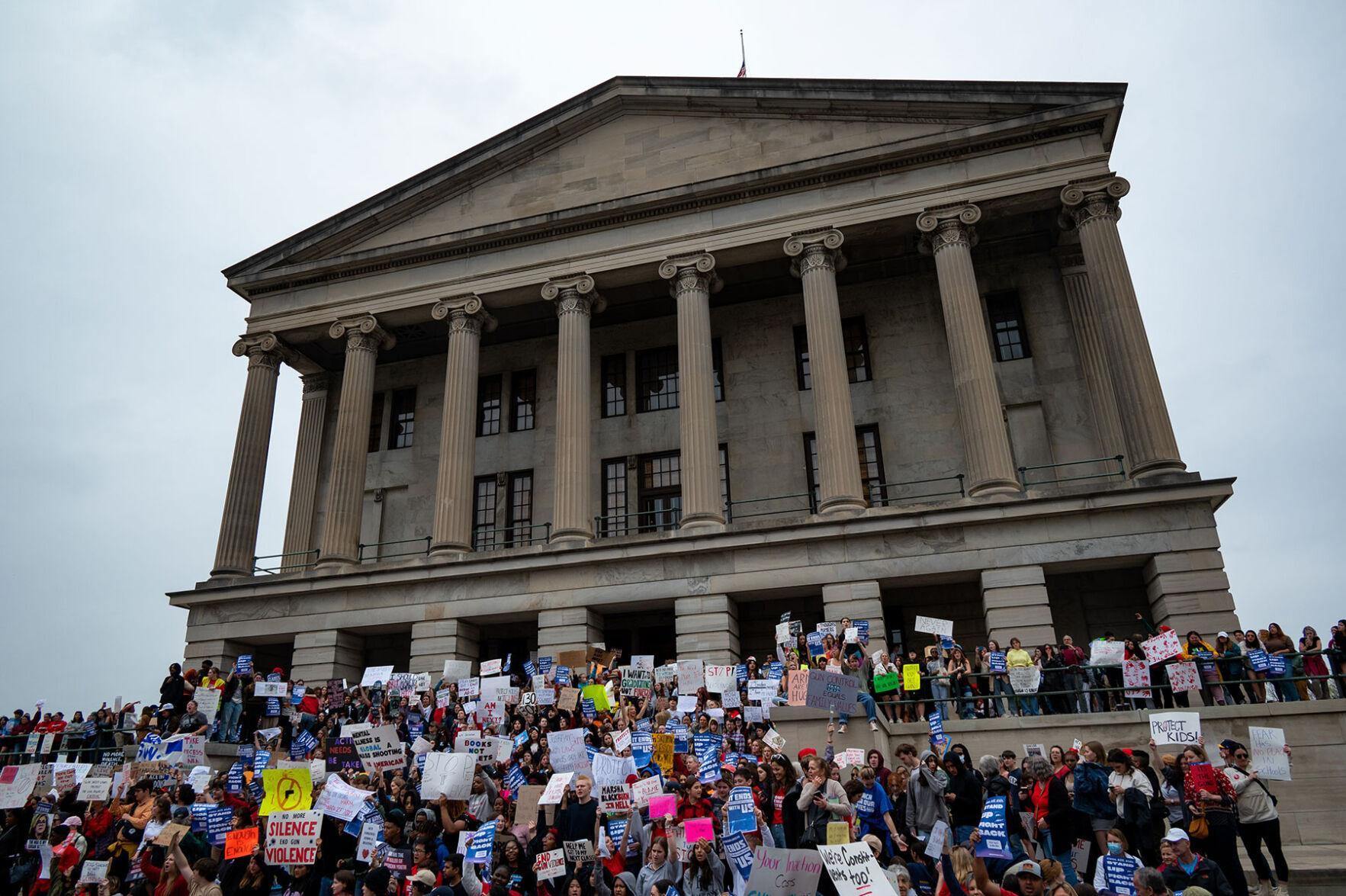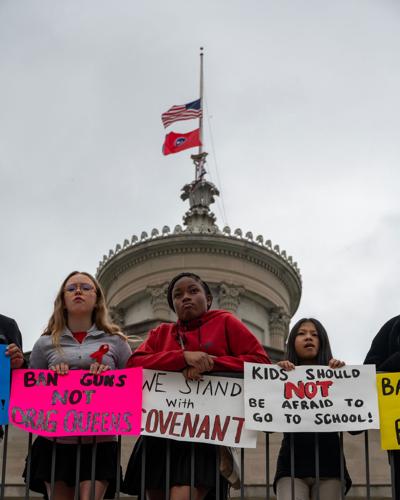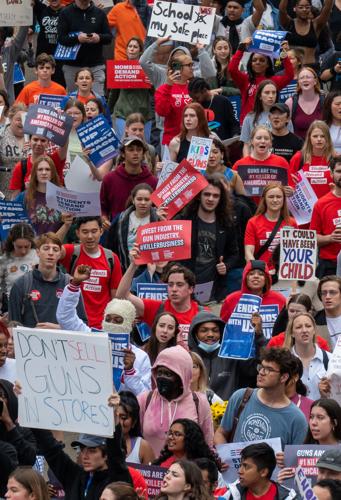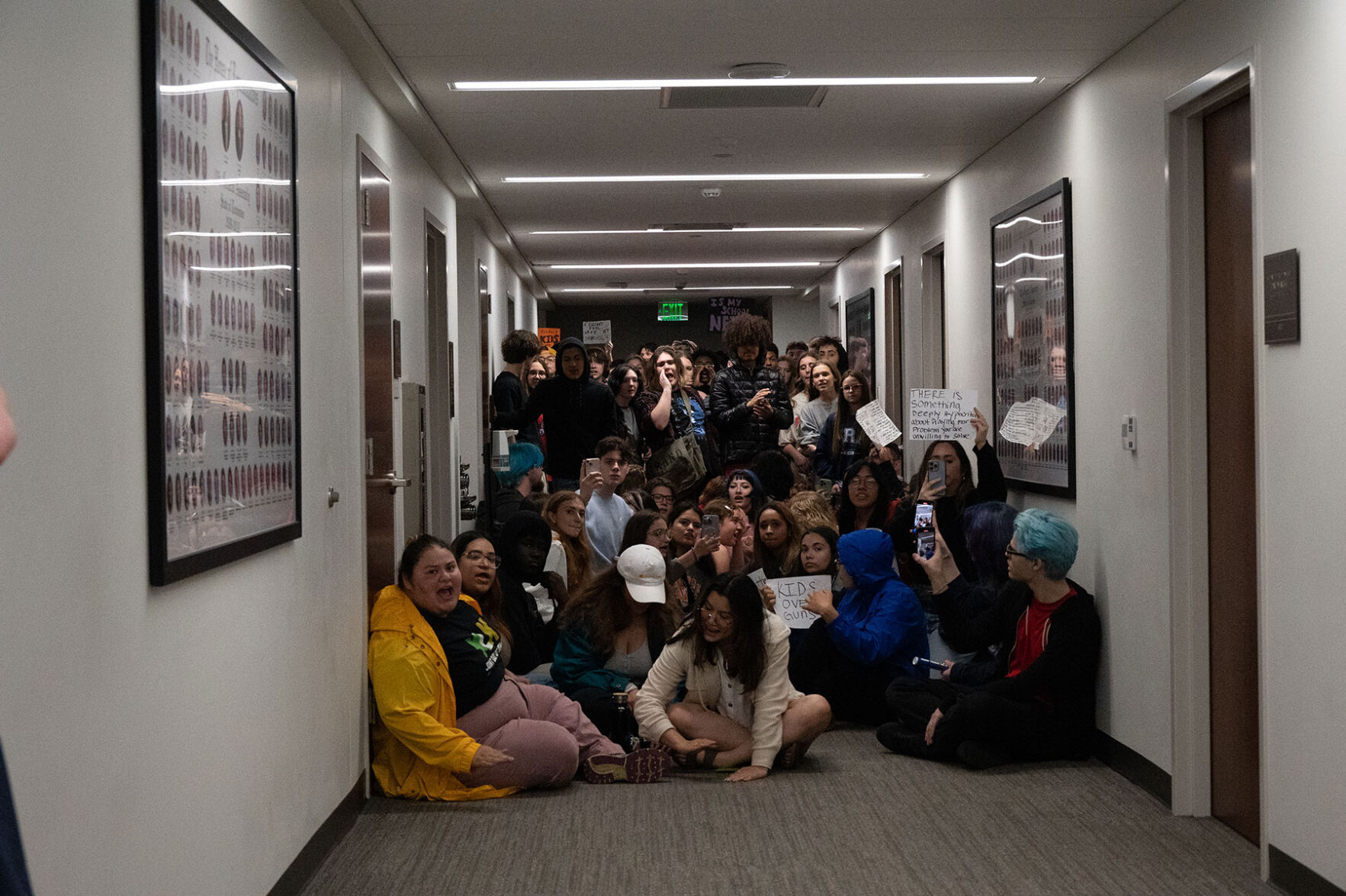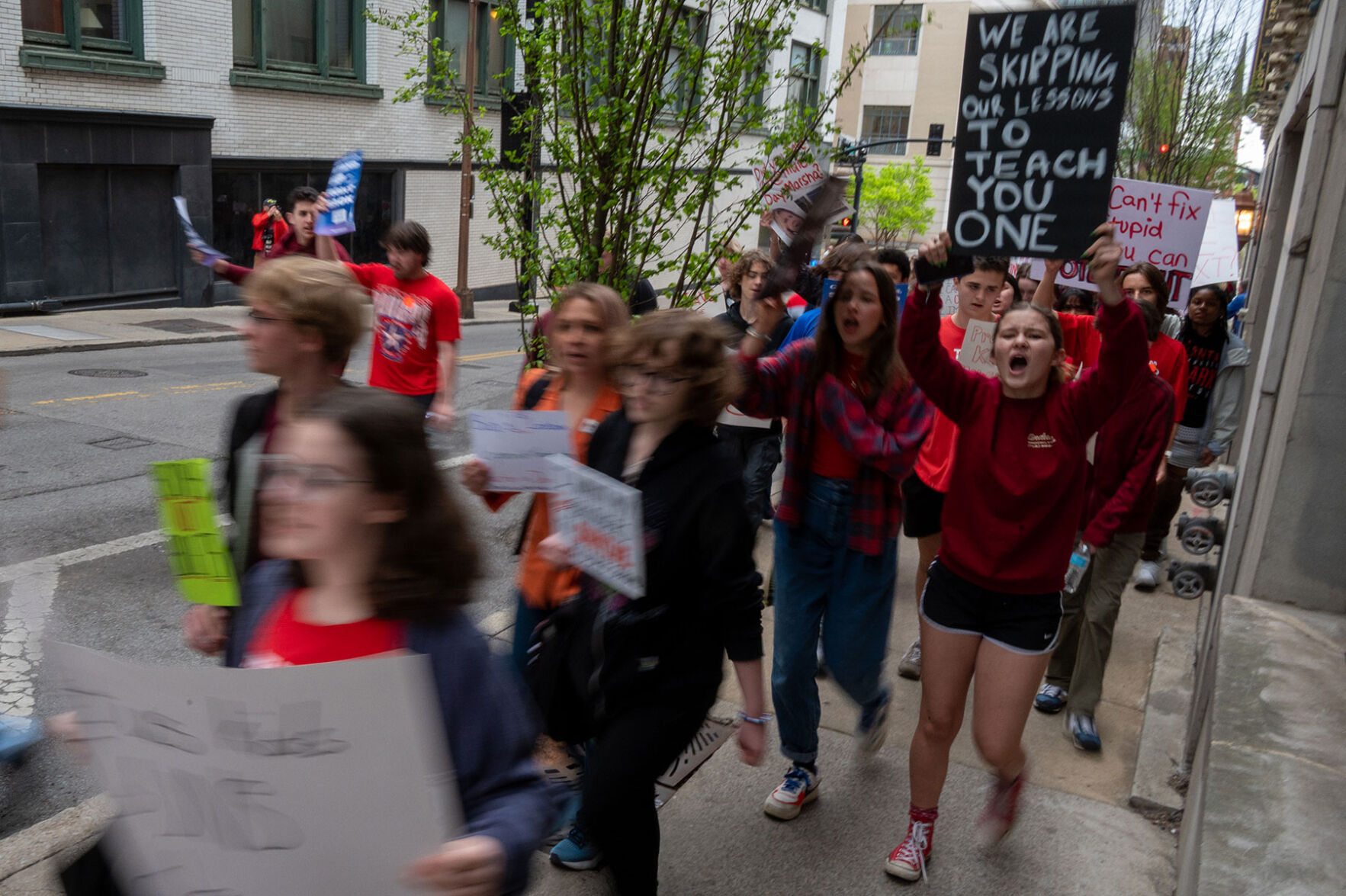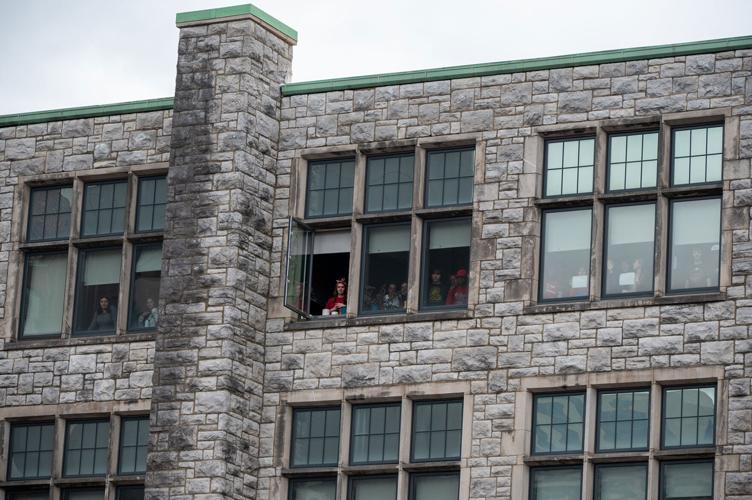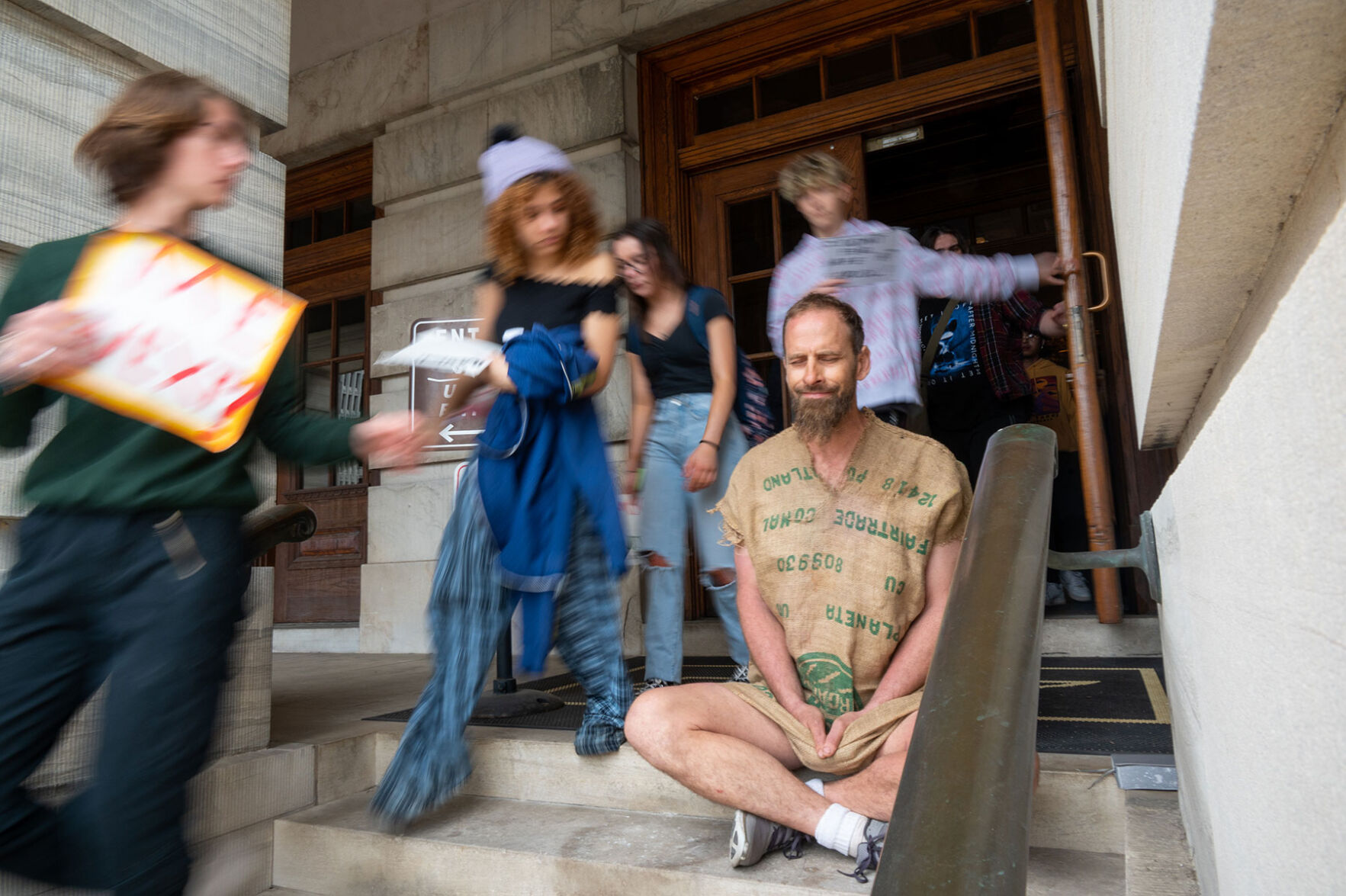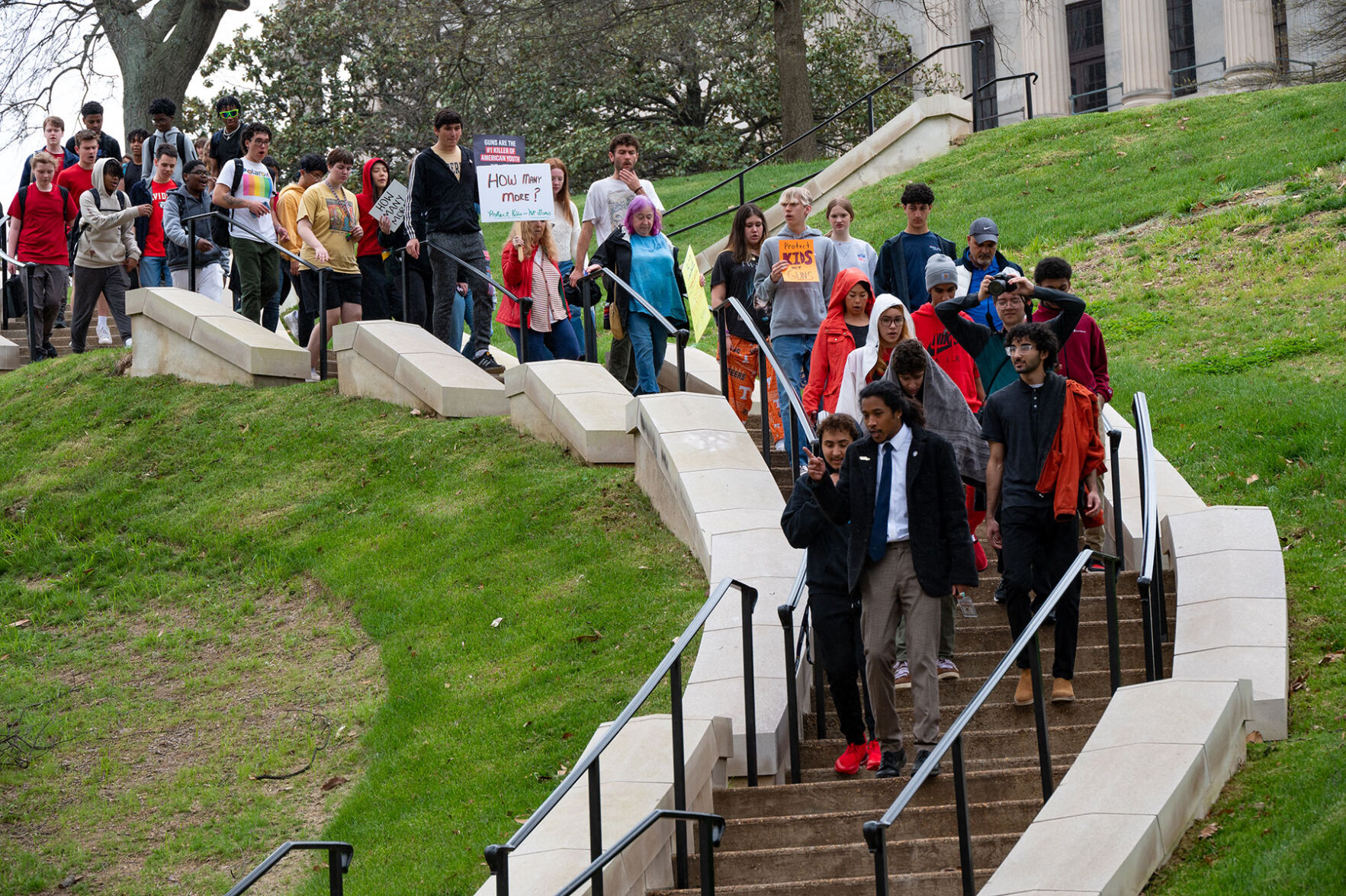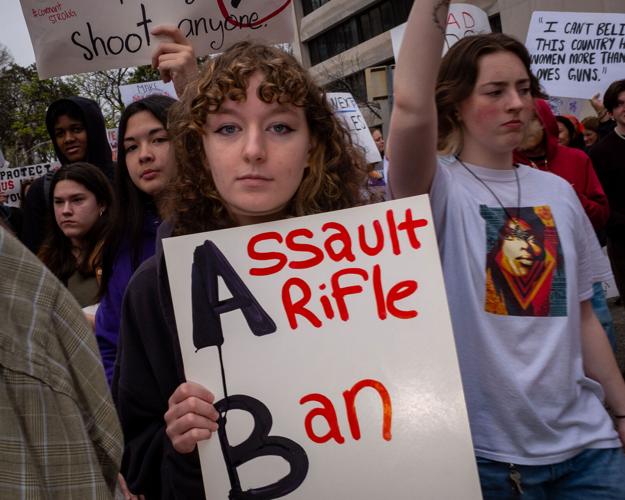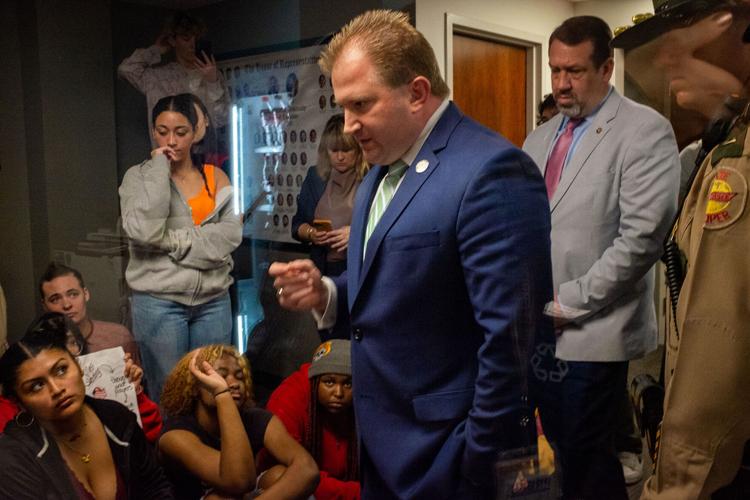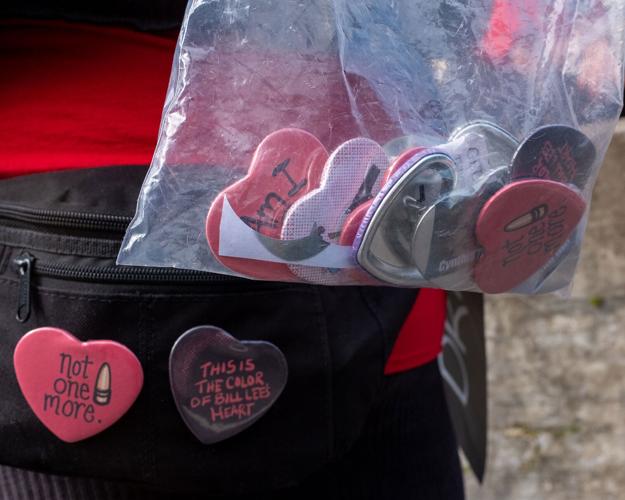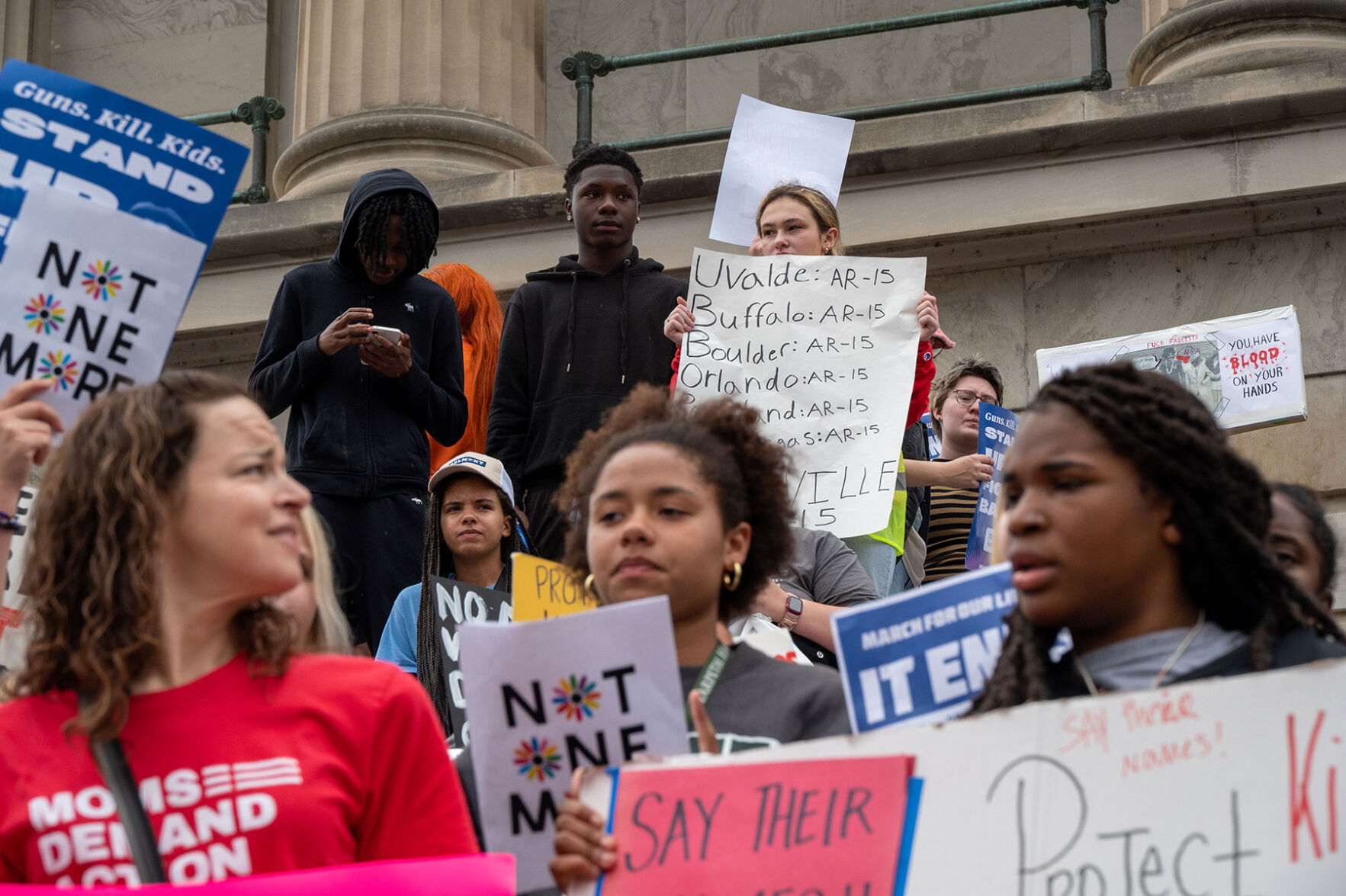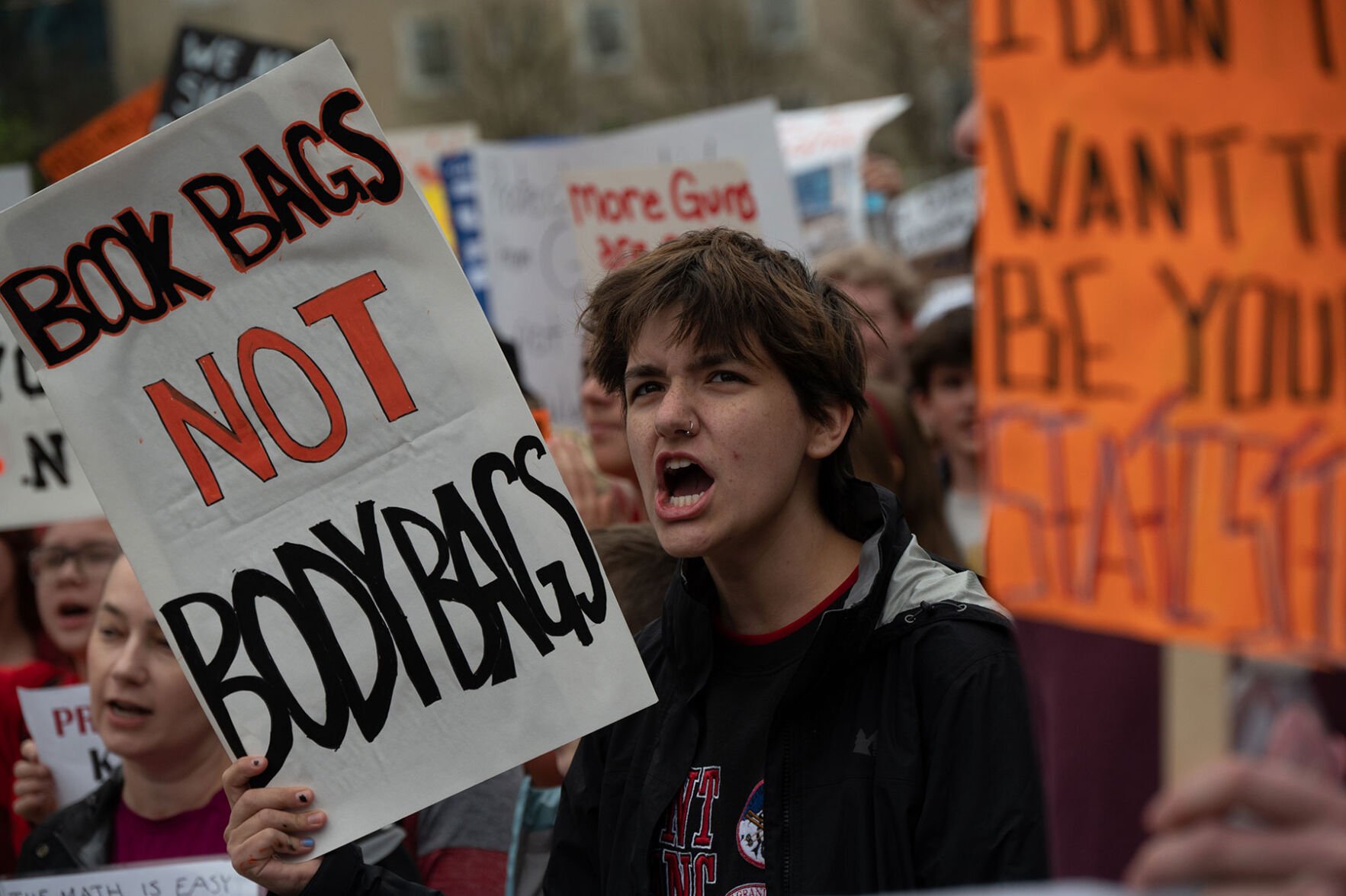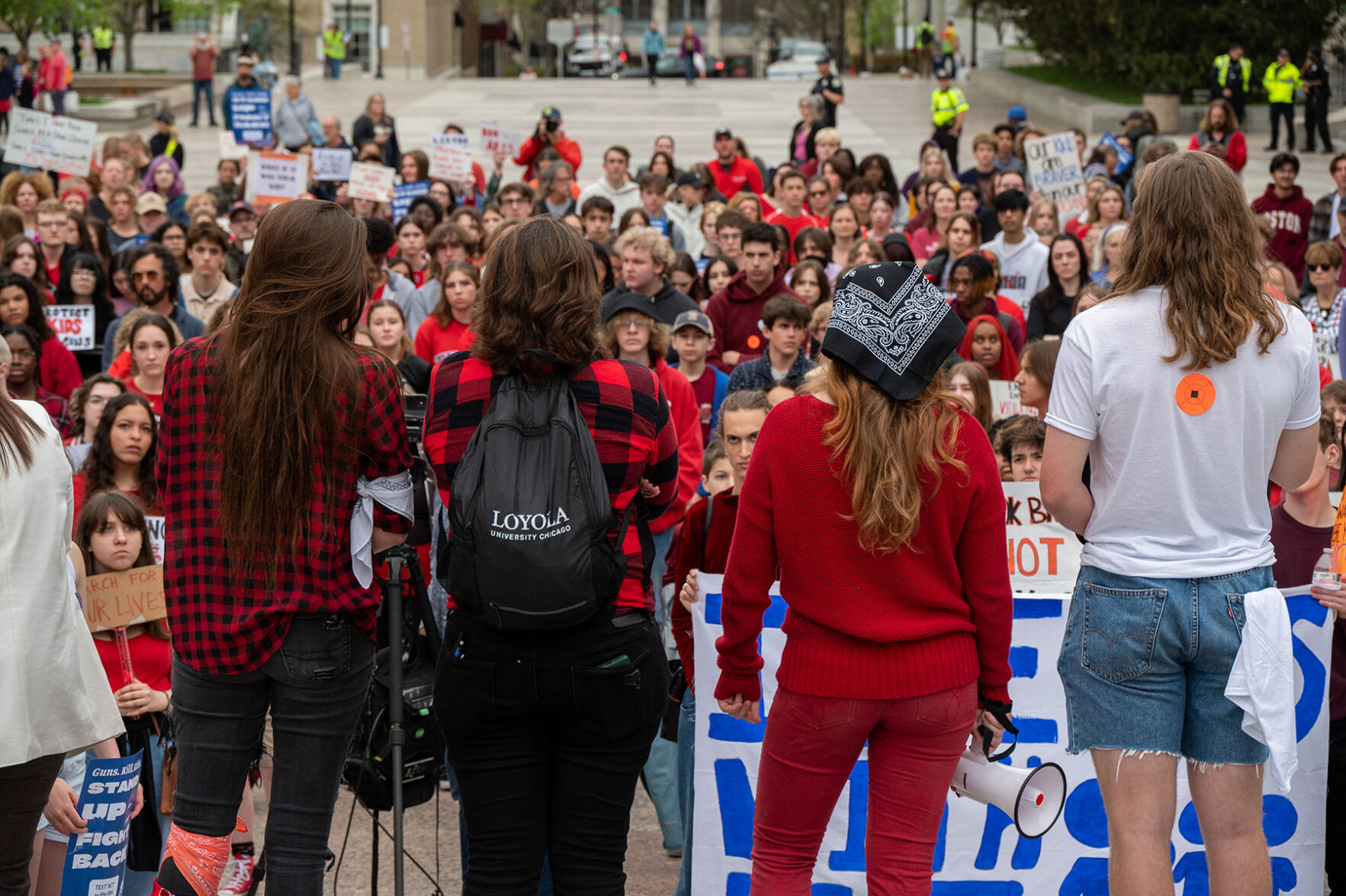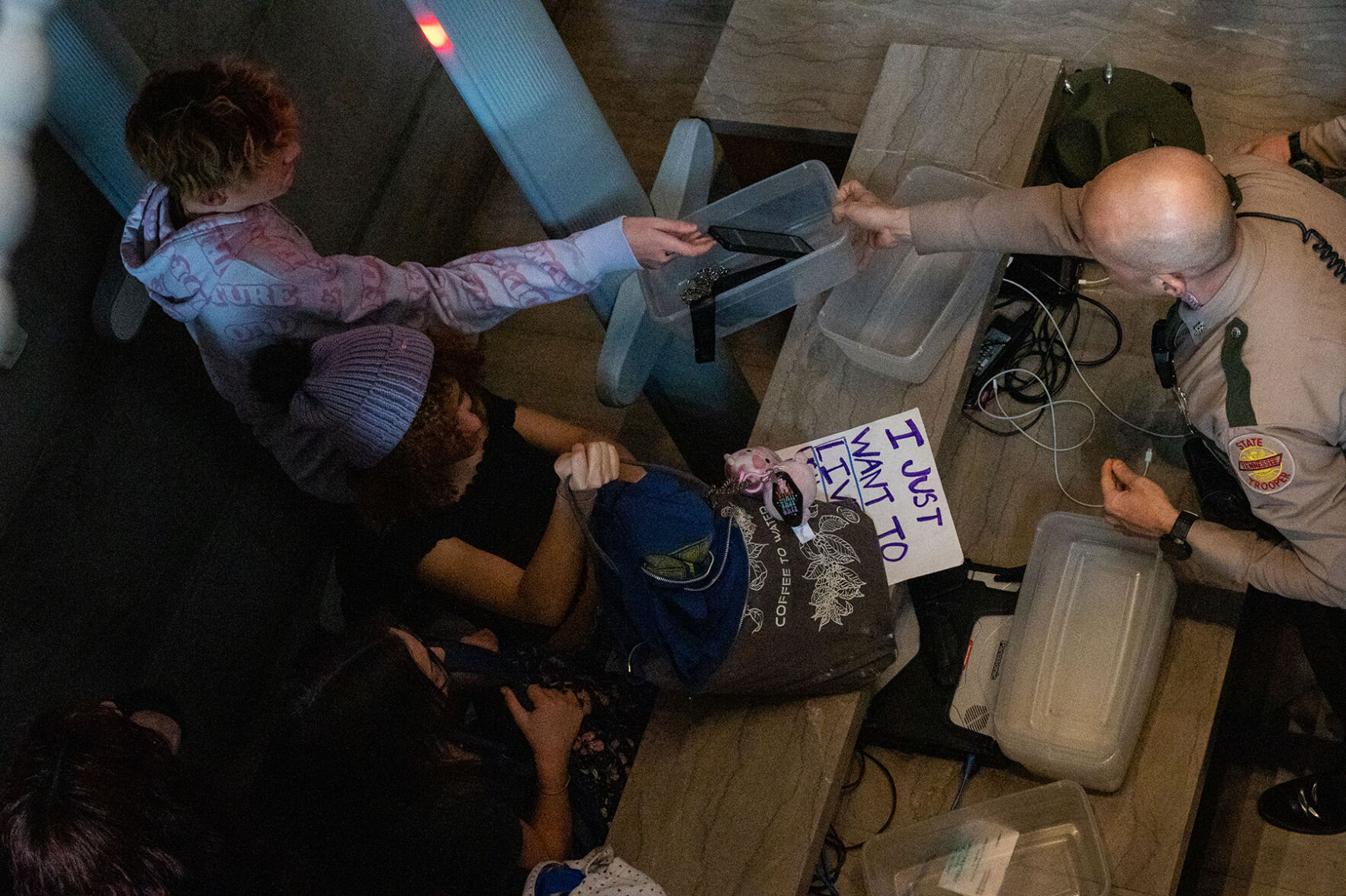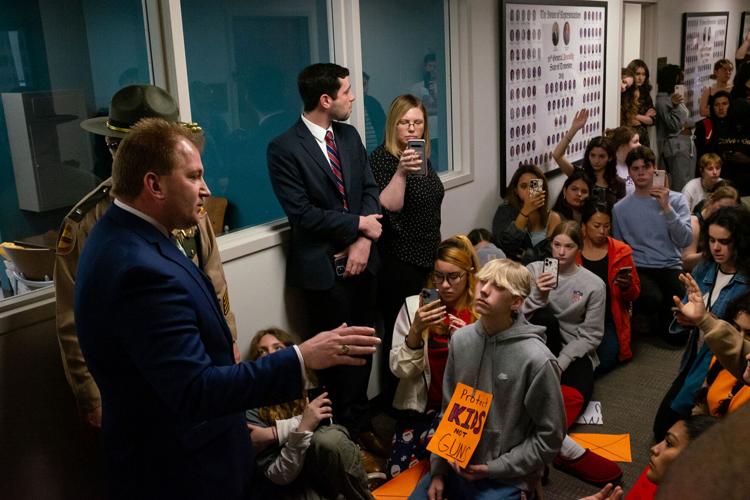Nashville — including the city’s youth — is hurting in the wake of last week’s Covenant School shooting. Thousands of students skipped class on Monday to join a March for Our Lives rally at the Tennessee Capitol.
Eleven-year-old Eli and 12-year-old Miller attended the event with their mothers.
“It’s just a fact that kids go through a lot of things that most adults don’t go through,” Eli told the Scene Monday. “And they have to understand that, if you go to school, there’s a [possibility] that you’re gonna get shot. … It makes me upset.”
“When I go to school it’s kind of scary because I’ll hear, in my building, there’s loud bangs a lot because there’s construction going on and I’ll think it’s a gun,” said Miller.
“I didn’t know how to have the conversation with him,” said Miller’s mom Andrea Champion. “He started tearing up, and he said, ‘Mama, how do you know that I’m safe at school? … I go to a private school that’s a Christian school — just like the one that got shot. And how do you know I’m safe?’ And I don’t know.”
There are many free resources available as Nashvillians continue to process the shooting and grieve for its victims. The American School Counselor Association has an entire tool kit related to school shootings. Book publisher A Kids Co. provides free e-books on the matter. Metro Nashville Public Schools have counselors and social workers on staff, and the district’s “You Matter” webpage lists additional resources for students. The Scene compiled a list of resources shortly after the shooting — places to find mental health support, as well as places to make financial donations, for those who can.
Alive Nashville is a hospice care and end-of-life service provider that also has a dedicated grief center, which provides programming like one-on-one counseling and grief camps for children. On April 6, Alive will host two free webinars addressing the Covenant School shooting, called “Support Your Grieving Child,” at noon and 6:30 p.m. (Register via alivenashville.com.) The webinars will provide information that can help adults navigate these difficult conversations with children.
“Our philosophy … is that if they’re old enough, developmentally, to ask a question, they deserve [an age-appropriate] answer,” says Alissa Drescher, Alive’s senior director of mission-based services. “And we can trust our kids to lead in that process.”
Student Gun Protest, 4/3/23
Holly Cannon-Hesse embraces her daughter Mina, an MNPS student, at Legislative Plaza, April 3
Protesters rally against gun violence at the state Capitol, April 3, 2023
Protesters rally against gun violence at the state Capitol, April 3, 2023
Protesters rally against gun violence at the state Capitol, April 3, 2023
Crowds rally against gun violence at the state Capitol, April 2023
Crowds rally against gun violence at the state Capitol, April 2023
Students, parents and allies rally for gun reform at the state Capitol
Students, parents and allies rally for gun reform at the state Capitol
Students call for gun reform at the Cordell Hull Building, April 3, 2023
Students confront House Majority Leader William Lamberth at the Cordell Hull Building, April 3, 2023
These conversations will look different depending on the age of the young person. Drescher advises folks to compare it to serving a pizza. “If that’s a 5-year-old that you’re serving pizza to, you’re going to cut it up into small bits and give them a piece at a time,” says Drescher. “If it’s a 17-year-old, you might put the whole pizza in front of them, and then watch them devour however much of it they can. … It’s important for us to start in a bite-sized piece, and then trust that child to come back to us and let us know when they’re ready for more.”
Additionally, the age of the child or teen will inform the capacity they have to talk about these kinds of topics. Young kids, for example, might engage with this topic for only a few minutes before they’re ready to go out and play — but just because they’re not talking about it doesn’t mean they aren’t processing and coping in other ways.
“Children learn and process their emotions through play,” says Drescher. “And so it’s good for them to get out there and do those things and relax.”
“We don’t want to force young people to have to talk about it,” she says. “One work-around in that regard is to ask them what they’re hearing from other people and what their friends are saying about it. … It’s a way to kind of open the door to having that hard conversation without having to directly ask that child.”
Drescher says it might take days, weeks or months before a child is ready to talk again. Behavioral changes such as acting out or difficulties paying attention might indicate when it’s time to check in with them again.
“The best thing that you can do for your child under any circumstances is to be healthy and whole for yourself,” says Drescher. “We have to make sure that we’re willing to address our own concerns and needs. And even if we can’t sort that out, that’s OK. This is kind of unsolvable. … Walking around with that and having to carry something that you can’t box up and put a pretty bow around gets tough for everyone, regardless of their age. So I think just creating space for it and attending to it over time as it comes up is the best thing that we can do.”

